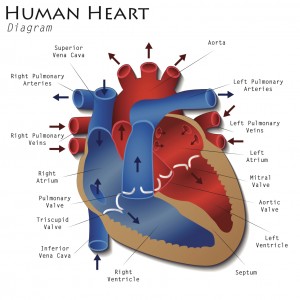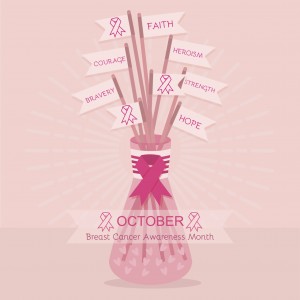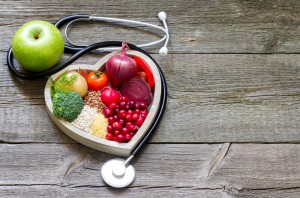 With all the focus on the American Red Cross and their Go Red for Women campaign this month we thought we’d focus on women’s heart health. What better way to keep our hearts in tiptop shape than by knowing the signs of a heart attack? After all, women don’t experience the same signs of a heart attack men do. So, let’s be aware and take the warning signs to heart…
With all the focus on the American Red Cross and their Go Red for Women campaign this month we thought we’d focus on women’s heart health. What better way to keep our hearts in tiptop shape than by knowing the signs of a heart attack? After all, women don’t experience the same signs of a heart attack men do. So, let’s be aware and take the warning signs to heart…
Sweating. Pressure. Nausea. Jaw pain. Believe it or not, these are all symptoms of a heart attack in women. Seems familiar, doesn’t it? They’re also symptoms that women often brush off as the flu, stress or simply feeling under the weather—which could put their lives in jeopardy.
The most common heart attack symptom in women is chest pain or discomfort, like men. But it’s important to note that women are more likely to experience the other common symptoms, particularly shortness of breath, nausea/vomiting and back/jaw pain. Other symptoms of a heart attack:
- Uncomfortable pressure, squeezing, fullness or pain in the center of your chest that lasts more than a few minutes, or goes away and comes back.
- Pain or discomfort in one or both arms, the back, neck, jaw or stomach.
- Shortness of breath, with or without chest discomfort.
- Other signs such as breaking out in a cold sweat, nausea or lightheadedness.
Women who consider themselves healthy often misdiagnose the symptoms of a heart attack because they don’t think it could happen to them. It’s crucial to learn about heart disease and stroke, live a heart-healthy lifestyle and be aware of the risk factors of heart disease.
If you would like more information on symptoms of a heart attack, contact Dr. Gordon C. Gunn MD in Fullerton, CA at 714-912-2211 to schedule an appointment today. Or visit www.gordongunnmd.com for additional information regarding women’s health.
Dr. Gordon Gunn proudly serves Buena Park, La Mirada, Yorba Linda, Diamond Bar, Walnut and all surrounding areas.

 It’s January – and we are all in the midst of our new year resolutions. Some focus on life, others focus on health, but all are working towards building healthy habits going forward. One of the main focuses for becoming healthier is heart disease prevention. After all, more and more Americans are becoming diagnosed with many
It’s January – and we are all in the midst of our new year resolutions. Some focus on life, others focus on health, but all are working towards building healthy habits going forward. One of the main focuses for becoming healthier is heart disease prevention. After all, more and more Americans are becoming diagnosed with many  It is always important to take care of your health by getting regular check-ups. And sometimes, this will include going in to check on our
It is always important to take care of your health by getting regular check-ups. And sometimes, this will include going in to check on our 
 We are our own worst critics. We are all guilty of having many areas of our lives that we would like to improve upon, and all improvement requires hard work and motivation. In walks the month of September…
We are our own worst critics. We are all guilty of having many areas of our lives that we would like to improve upon, and all improvement requires hard work and motivation. In walks the month of September…
 Every year, over 11 million women develop a urinary tract infection, (also known as a UTI, a bladder infection or acute cystitis). These infections are more
Every year, over 11 million women develop a urinary tract infection, (also known as a UTI, a bladder infection or acute cystitis). These infections are more